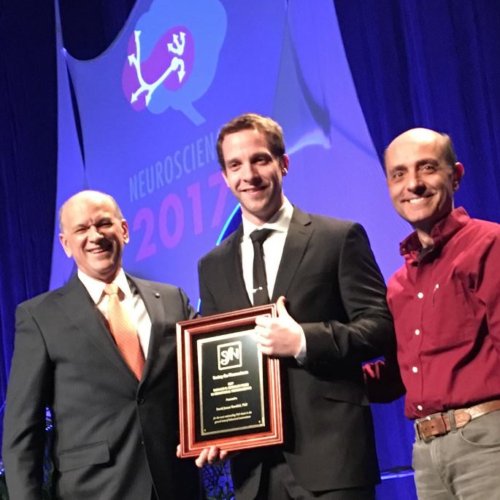
David Herzfeld
Using mathematical formulations, Herzfeld has shown how the brain systematically controls how it learns from error. He is credited with two important discoveries: First, he introduced the concept of memory of errors, which holds that the experience of error results in learning. This idea represents a breakthrough in understanding how humans and animals are able to learn motor control and was published in Science in 2014. Second, in collaboration with colleagues at the University of Washington, he developed a solution to the problem of neural coding of movements in the cerebellum, analyzing data from Purkinje cells to cluster them into small populations that collectively presented to have individual functions. The study, which illustrated the neurophysiology of the cerebellum, was published in Nature in 2015.
According to Kamran Khodakhan, a leading cerebellar neuroscientist at the Albert Einstein College of Medicine in Bronx, N.Y., Herzfeld’s discoveries solved a long-standing puzzle regarding the function of a critical brain structure.
